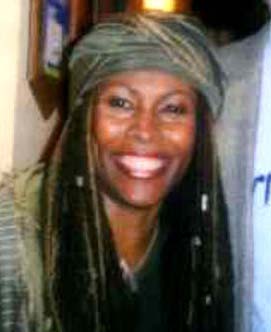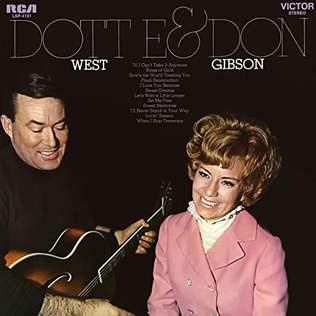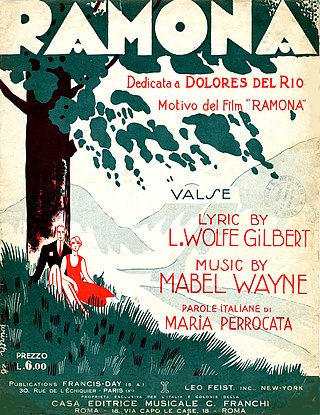Related Research Articles
"The Wonder of You" is a song written by Baker Knight. It was originally recorded by Vince Edwards in 1958, but this recording has never been released. In an interview with a DJ from Chattanooga, Tennessee, Ray Peterson told the story of how Baker Knight confided that "The Wonder of You" was originally written as a gospel song.

Red Rose Speedway is the second studio album by the English-American rock band Wings, although credited to "Paul McCartney and Wings". It was released through Apple Records on 5 May 1973, preceded by its lead single, the ballad "My Love". By including McCartney's name in the artist credit, the single and album broke with the tradition of Wings' previous records. The change was made in the belief that the public's unfamiliarity with the band had been responsible for the weak commercial performance of the group's 1971 debut album Wild Life.
"You Belong to Me" is a popular music ballad from the 1950s. It is well known for its opening line, "See the pyramids along the Nile". The song was published in Hollywood on April 21, 1952, and the most popular version was by Jo Stafford, reaching No. 1 on both the UK and US singles charts.

"Jezebel" is a 1951 popular song written by American songwriter Wayne Shanklin. It was recorded by Frankie Laine with the Norman Luboff Choir and Mitch Miller and his orchestra on April 4, 1951 and released by Columbia Records as catalog number 39367. The record reached number 2 on the Billboard chart and was a million seller. The B-side, "Rose, Rose, I Love You", was a hit too and reached number 3.

Brenda Russell is an American singer-songwriter, producer, and keyboardist. Russell has a diverse musical range which encompasses R&B, pop, soul, dance, and jazz. She has received five Grammy nominations.
"Heartaches by the Number" is a popular country song written by Harlan Howard, and published in 1959. The sheet music was a best seller in both the US and Britain in January 1960.

"Let It Be Me" is a popular song originally published in French in 1955 as "Je t'appartiens" interpreted by Gilbert Bécaud. It became popular worldwide with an English version by the Everly Brothers and later with the duet by Betty Everett and Jerry Butler.

"Sara Smile" is a song written and recorded by the American musical duo Hall & Oates. It was released as the third single from their album Daryl Hall & John Oates. The song was the group's first top 40 and first top ten hit in the US, reaching number four on the Billboard Hot 100.

Dottie and Don is a studio album by American country music artists Don Gibson and Dottie West. It was released in March 1969 on RCA Victor Records and was produced by Chet Atkins and Danny Davis. The album was a collection of duet recordings between Gibson and West. It was both artists first album of duets to be recorded. Among the songs from the project, "Rings of Gold" became a major hit in 1969.

"Ramona" is a 1928 song with lyrics by L. Wolfe Gilbert and music by Mabel Wayne. Composed for the 1928 feature film Ramona, it was the first theme song written for the movies.

"Sara" is a song written by singer-songwriter Stevie Nicks of the British-American rock band Fleetwood Mac, which was released as a single from the 1979 Tusk double LP. The vinyl album version length is 6 minutes 22 seconds, and the edited single version length is 4 minutes 37 seconds. The song peaked at No. 7 in the US for three weeks, No. 37 in the UK for two weeks, No. 11 in Australia, and No. 12 in Canada.
Billboard Top Pop Hits is a series of compilation albums released by Rhino Records in 1994 and 1995, each featuring ten recordings from the easy listening charts from a specific year in the 1960s. Ten albums in the series were released, one each for the years from 1960 to 1969.
"Baby Face" is a popular Tin Pan Alley jazz song. The music was written by Harry Akst, with lyrics by Benny Davis, and the song was published in 1926.
"Cow Cow Boogie (Cuma-Ti-Yi-Yi-Ay)" is a "country-boogie"-style blues song, with music was written by Don Raye, and lyrics were written by Benny Carter and Gene De Paul. The song was written for the 1942 Abbott & Costello film Ride 'Em Cowboy, which included Ella Fitzgerald as a cast member, but was cut from the movie.

This Is...Brenda is the third studio album by American singer Brenda Lee. The album was released on October 10, 1960, on Decca Records and was produced by Owen Bradley. The release was Brenda Lee's second studio album released during 1960 and contained the single "I Want to Be Wanted", which became a number one single on the Billboard Hot 100.

Emotions is the fourth studio album by American singer Brenda Lee. The album was released on April 3, 1961 on Decca Records and was produced by Owen Bradley. It was one of two studio albums released by Lee in 1961 and its title track became a Top 10 hit on the Billboard Hot 100 the same year.

All the Way is the fifth studio album by American singer Brenda Lee. The album was released August 7, 1961, on Decca Records and was produced by Owen Bradley. It was the second of two studio albums released by Brenda Lee in 1961 and spawned the single "Dum Dum", which became a Top 10 hit on the Billboard Hot 100, and a UK single "Speak to Me Pretty", which reached No.3 on the UK singles chart.

Brenda, That's All is the seventh studio album by American singer Brenda Lee. The album was released October 15, 1962 on Decca Records and was produced by Owen Bradley. It was the second of two studio albums released in 1962 and included two Top 10 hit singles on the Billboard Hot 100 between 1962 and 1963.
"Rose Garden" is a song written in 1967 by American singer-songwriter Joe South. It was first recorded by Billy Joe Royal on his 1967 studio album Billy Joe Royal Featuring "Hush". Versions by South himself and Dobie Gray appeared shortly after the original. Gray's version became a minor hit in North America in 1969.
"This Time" is a song written by Chips Moman, which was first recorded by Thomas Wayne and was released as a single on the Fernwood Records label in March 1958. On March 31, 1958, the song was released on the Mercury Records label, as the B-side of "You're The One That Done It".
References
- ↑ Rucker, Leland (January 1, 1998). "The Fleetwoods". In Knopper, Steve (ed.). MusicHound Lounge: The Essential Album Guide. Detroit: Visible Ink Press. pp. 175–176.
- ↑ "secondhandsongs.com". secondhandsongs.com. Retrieved January 26, 2021.
- ↑ Thomas Wayne charting singles Retrieved 09-24-11
- ↑ The Fleetwoods' charting singles. It was also #26 hit in Italy. Retrieved 09-24-11
- ↑ Brian Hyland's charting singles Retrieved 09-24-11
- ↑ Brenda Lee, All the Way Retrieved 09-24-11
- ↑ "www.allmusic.com". allmusic.com. Retrieved March 28, 2023.